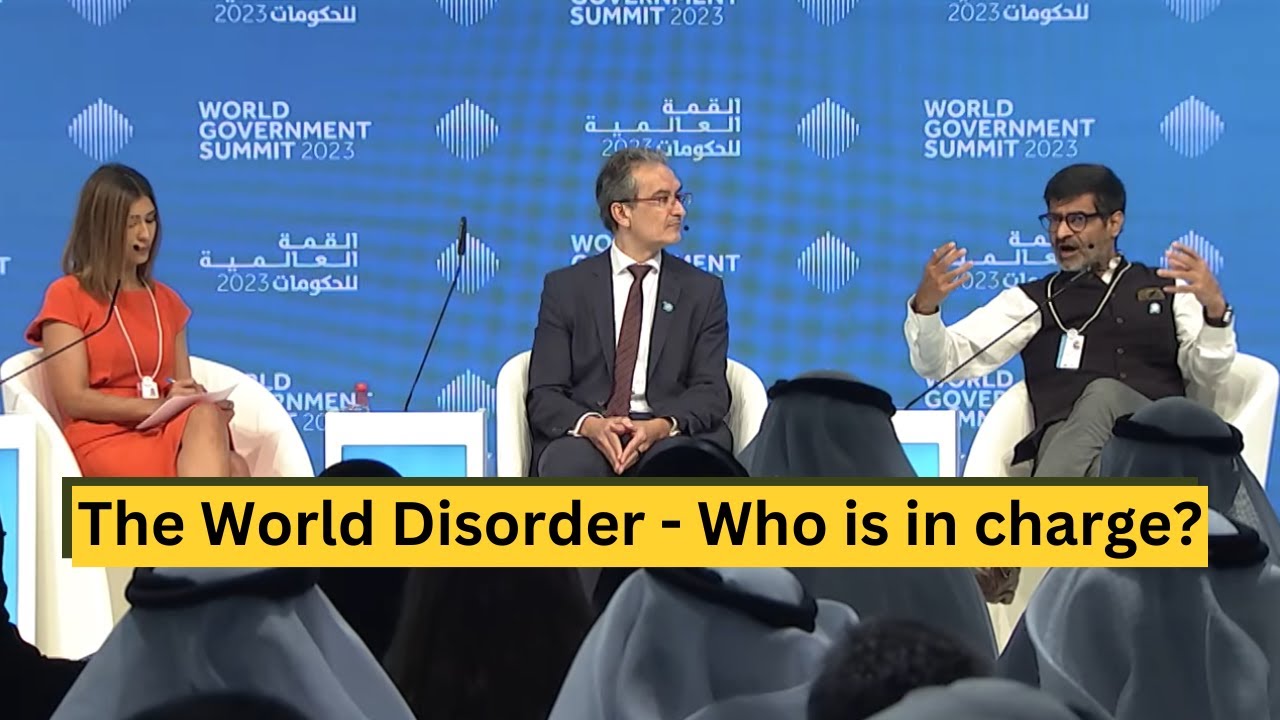The India Alternative | Can Germany and Europe Embrace It
Summary
TLDRIn a thought-provoking discussion, panelists explore the global leadership void and Europe's role in the changing world order. They debate Europe's economic reliance on China and the need for a more assertive stance, considering the rise of India and other emerging economies. The conversation touches on the importance of critical thinking, the influence of Western media, and the necessity for a more inclusive global governance that reflects current realities, including technological partnerships and the shifting dynamics of power.
Takeaways
- 🌏 The speaker believes that Europe is not betting on the rise of new global actors like India, and instead is anchored to China's future.
- 🔄 Europe is criticized for not being expeditionary enough and for not exploring new opportunities in different parts of the world, preferring to play safe.
- 📈 The speaker highlights India's growth at 8% and attributes it to the hard work and long hours put in by its people, contrasting this with the perceived lack of growth in Europe.
- 💭 There is a call for Europe to develop a critical thinking identity that matches its economic power and to stop following others' leads.
- 🚀 The speaker anticipates India's economy growing from $4 trillion to $10 trillion in the next 10 years, offering opportunities for Europe to diversify away from China.
- 🤝 The Munich Security Conference 2024 focused on the need to include the global South and addressed the UN General Assembly vote's reflection on global dissatisfaction with the current world order.
- 🔗 The conference recognized a common frustration among countries abstaining from key votes, feeling disadvantaged by the current global order and its rules.
- 🌐 The speaker argues for a reset in global governance, suggesting that the G20 is becoming more important than the G7 and that new voices from the global South should be included.
- 🛑 The UN Security Council is viewed as a continuation of a colonial project, with the speaker advocating for its reform to better represent the current world population and power dynamics.
- 💼 The IMF report is cited to emphasize that nearly 60% of global growth is from developing and emerging countries, indicating a need for these countries to have a greater say in global financial flows.
- 🤝 The speaker suggests that partnerships in technology, defense, and AI could be beneficial, particularly highlighting the potential of an India-EU partnership.
Q & A
What is the main concern expressed by Mr. Sarin about Europe's economic strategy?
-Mr. Sarin expresses concern that Europe is too reliant on China and not exploring new opportunities in other parts of the world, particularly India, which is growing rapidly.
What does Mr. Sarin suggest as a reason for Europe's lack of growth?
-He suggests that Europe's lack of growth may be due to a cultural tendency to 'take two months off every year', implying a less work-intensive approach compared to countries like India.
What does Mr. Sarin identify as the main resource Europe is lacking?
-Mr. Sarin believes that Europe is lacking not in critical minerals, but in critical thinking, which is necessary to define and shape the future.
What does Mr. Sarin propose as a solution for Europe's 'China addiction'?
-He proposes that Europe should diversify and start betting on other emerging economies like India, which is moving from a $4 trillion to a $10 trillion economy in the next 10 years.
What was the main focus of the Munich Security Conference 2024 according to Benedict Franka?
-The Munich Security Conference 2024 focused on the need to include the global South and address the concerns of countries that feel disadvantaged by the current global order.
What does Benedict Franka suggest is a common frustration among the global South?
-Benedict Franka suggests that the global South shares a common frustration with the current global order, feeling that it does not work for them and structurally disadvantages them.
What does Mr. Sarin argue about the UN Security Council?
-Mr. Sarin argues that the UN Security Council represents a continuation of a colonial project and needs to be reformed or dismantled to allow for a more equitable global governance.
What does Mr. Sarin believe should be done with the P5 (Permanent Five members of the UN Security Council)?
-Mr. Sarin believes that the P5 should be 'pensioned off' or retired, and that new voices and faces should be included to better represent the current global landscape.
What does Benedict Franka suggest as a way to address the concerns of the global South?
-Benedict Franka suggests creating partnerships and expanding the current system to include more countries, making global governance mechanisms more attractive to the global South.
What does Mr. Sarin see as a problem with Europe's approach to China?
-Mr. Sarin sees a problem with Europe's 'China addiction', suggesting that Europe is not willing to change its business practices with China despite growing security concerns.
What does Benedict Franka believe is necessary for a true transatlantic partnership?
-Benedict Franka believes that a true transatlantic partnership on technology is necessary, rather than competing with each other, which he sees as a mistake.
Outlines

此内容仅限付费用户访问。 请升级后访问。
立即升级Mindmap

此内容仅限付费用户访问。 请升级后访问。
立即升级Keywords

此内容仅限付费用户访问。 请升级后访问。
立即升级Highlights

此内容仅限付费用户访问。 请升级后访问。
立即升级Transcripts

此内容仅限付费用户访问。 请升级后访问。
立即升级浏览更多相关视频

Top 3 Altcoins for 2025 Bull Run (Expert Picks)

Should The Internet Be Censored? | Ella Whelan, Yasmin Alibhai-Brown, Nigel Inkster

Georgia L. Anderson, Rory Sutherland, Stephan Pretorius and Antonis Kocheilas – AI | Nudgestock 2024

RIP SaaS? Exploring AI's Disruption of Software as a Service | Global AI Conclave

No One’s World - Rebuilding the World Order | Samir Saran |@WorldGovSummit|

What we get wrong about China. George Yeo in conversation with Alex Stubb
5.0 / 5 (0 votes)
